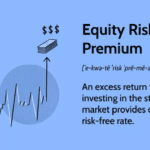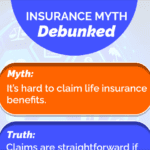Understanding Deductibles, Premiums, and Coverage Limits in Insurance
Insurance can sometimes feel like a complicated maze of terms and conditions, but understanding the key elements—deductibles, premiums, and coverage limits—can help you make informed decisions. Whether you’re purchasing health, auto, or homeowners insurance, these three factors play a crucial role in determining your coverage and costs.
What is a Deductible?
A deductible is the amount of money you must pay out of pocket before your insurance company starts covering expenses. Deductibles apply to various types of insurance, including health, auto, and homeowners policies. Generally, policies with higher deductibles tend to have lower premiums, while those with lower deductibles have higher premiums.
Example: Suppose you have an auto insurance policy with a $500 deductible. If you file a claim for $2,000 in damages, you’ll pay the first $500, and your insurance will cover the remaining $1,500.
What is a Premium?
A premium is the amount you pay for your insurance coverage, usually on a monthly, quarterly, or annual basis. Insurance companies calculate premiums based on various factors, such as your age, health status, driving history, location, and risk factors. Lower-risk individuals often receive lower premiums, while higher-risk individuals may pay more.
Example: If you purchase a health insurance policy with a $300 monthly premium, you must pay this amount each month to maintain your coverage, regardless of whether you use medical services.
What are Coverage Limits?
Coverage limits refer to the maximum amount your insurance provider will pay for a claim or specific type of coverage. Policies often have different limits for different categories of expenses. If your claim exceeds the coverage limit, you are responsible for paying the remaining costs out of pocket.
Example: Your homeowners insurance policy might have a $200,000 coverage limit for structural damage. If a fire causes $250,000 in damages, you will need to cover the additional $50,000 unless you have additional coverage.
How These Elements Work Together
When choosing an insurance policy, it’s essential to balance your deductible, premium, and coverage limits according to your financial situation and risk tolerance.
- Lower premiums often come with higher deductibles, meaning you’ll pay more out of pocket before insurance kicks in.
- Higher coverage limits provide better financial protection but may lead to higher premiums.
- Finding the right balance ensures you get the best coverage without overpaying or risking high out-of-pocket expenses.
Final Thoughts
Understanding deductibles, premiums, and coverage limits helps you make informed decisions when selecting an insurance policy. Take the time to compare different options, evaluate your needs, and consult with an insurance expert if necessary. By doing so, you can find a policy that offers the right balance of affordability and protection for your unique situation.
Have questions about insurance terms? Drop a comment below, and let’s discuss!



